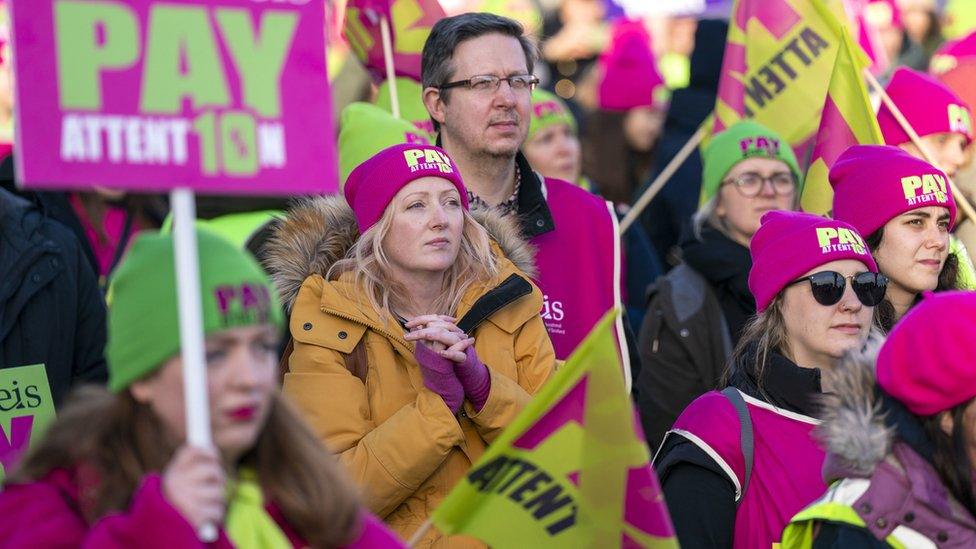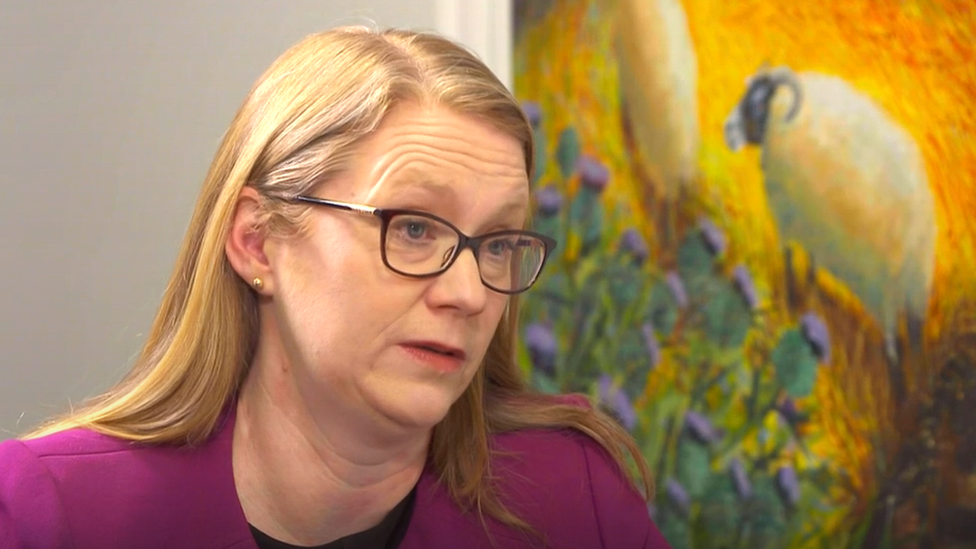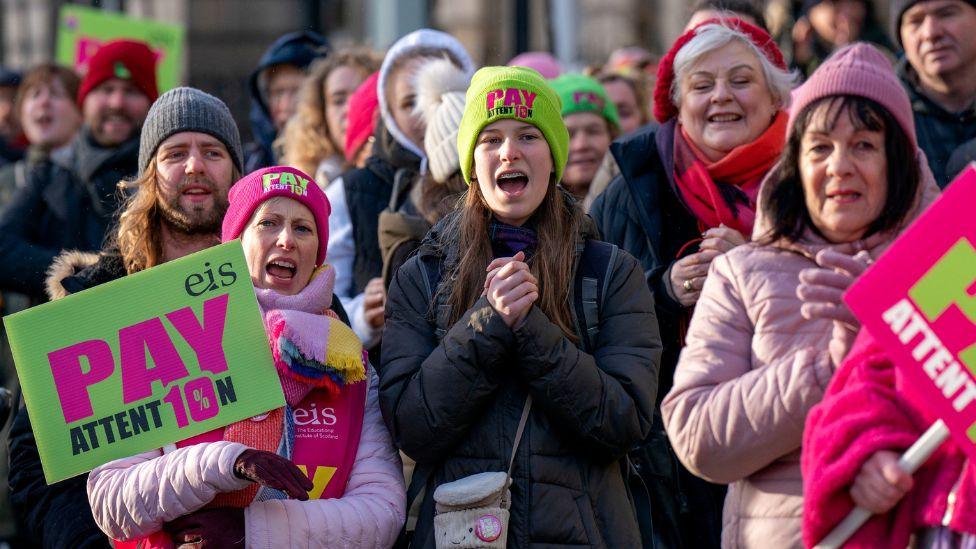Ministers' constituencies targeted in escalation of Scottish school strikes
- Published
- comments

Scotland's largest teachers' union will target the constituencies of the first minister and her deputy in an escalation of strike action.
It could lead to six further days of strike action in the Glasgow Southside constituency of Nicola Sturgeon and John Swinney's Perthshire North patch.
The EIS will also target the Dunfermline constituency of Education Secretary Shirley-Anne Somerville.
Teachers want a 10% pay increase which ministers say is unaffordable.
Ms Somerville has said teachers should suspend their strike action while pay talks continue, and called for more "compromise" as the exam season looms.
A national teachers' strike is already scheduled to take place on 28 February and 1 March.
There are also plans for 20 days of rolling strikes across all local authority areas from 13 March until 21 April.
Announcing three additional days of action from 22 to 24 February, the EIS said it would target the constituencies of:
First Minister Nicola Sturgeon (Glasgow Southside)
Deputy First Minister John Swinney (Perthshire North)
Cabinet Secretary for Education Shirley-Anne Somerville (Dunfermline)
Scottish Greens education spokesperson Ross Greer, MSP for West Scotland (action targeted in East Dunbartonshire)
A further three days of action from 7 March will target the four MSPs' constituencies and the ward of Dumfries and Galloway councillor Katie Hagmann.
She is resources spokesperson for council umbrella body Cosla but as councillor her ward is Mid Galloway and Wigtown West.
The union said details of the schools involved would be published shortly.
EIS members have already taken part in three days of national strike action and 16 days of rolling action across the country.
Shirley-Anne Somerville has called for more compromise to end the dispute
General secretary Andrea Bradley said it has been a year since the teachers' pay claim was submitted.
They have rejected the current 5% offer, which includes rises of up to 6.85% for the lowest-paid staff.
Ms Bradley accused the Scottish government and Cosla of having "dithered, delayed and dragged their feet while the cost of living has continued to soar".
"The latest offer, for a well below inflation 5%, has now been kicking around for six months and has been rejected by Scotland's teachers twice," she added.
"Our members have already taken part in three days of national strike action, and a further 16-days of rolling action across the country.
"The response from the Scottish government and Cosla has been, essentially, nil - and this now has forced an escalation in our action."


On this first anniversary of the teachers' pay claim, the education secretary was at Holyrood confirming plans to stop councils saving cash by cutting teaching posts.
While local authorities are deeply unhappy about that intervention, it should prevent a new front opening up in the dispute between teachers' unions and their employers.
It has not, however, softened attitudes in the EIS union over their demands for a 10 percent pay rise. Instead, they have significantly escalated industrial action.
Their plans to target schools in the constituencies of senior ministers will cause extra disruption for pupils and parents in these areas.
The union hopes this will, in turn, pressure the Scottish government into making a substantially improved pay offer. That is far less certain.

'Financial reality'
Ms Somerville, the education secretary, said: "We have been clear that a 10% pay increase for all teachers is unaffordable within the Scottish government's fixed budget.
"We've also been very clear about the need to progress opportunities for compromise so we can reach a fair and sustainable settlement for all involved.
"Escalation of strike action by targeting pupils, parents and carers in certain parts of the country does not change the financial reality the government is operating in."
Mr Greer said teachers and other public sector workers deserved a pay rise but he said the EIS should put pressure on the UK government.
He added: "The Scottish government could have delivered that if the UK government had given it a funding settlement which matched inflation.
"Instead, they have cut Scotland's budget in real terms. Holyrood can't pay out money it doesn't have."
Stephen Kerr, the Scottish Conservative's education spokesman called for ministers to "find a solution and finally end these strikes".
"Scotland's young people have already endured so much uncertainty during the pandemic and they deserve so much better than further upheaval to their education," he added.
- Published5 February 2023

- Published30 January 2023
